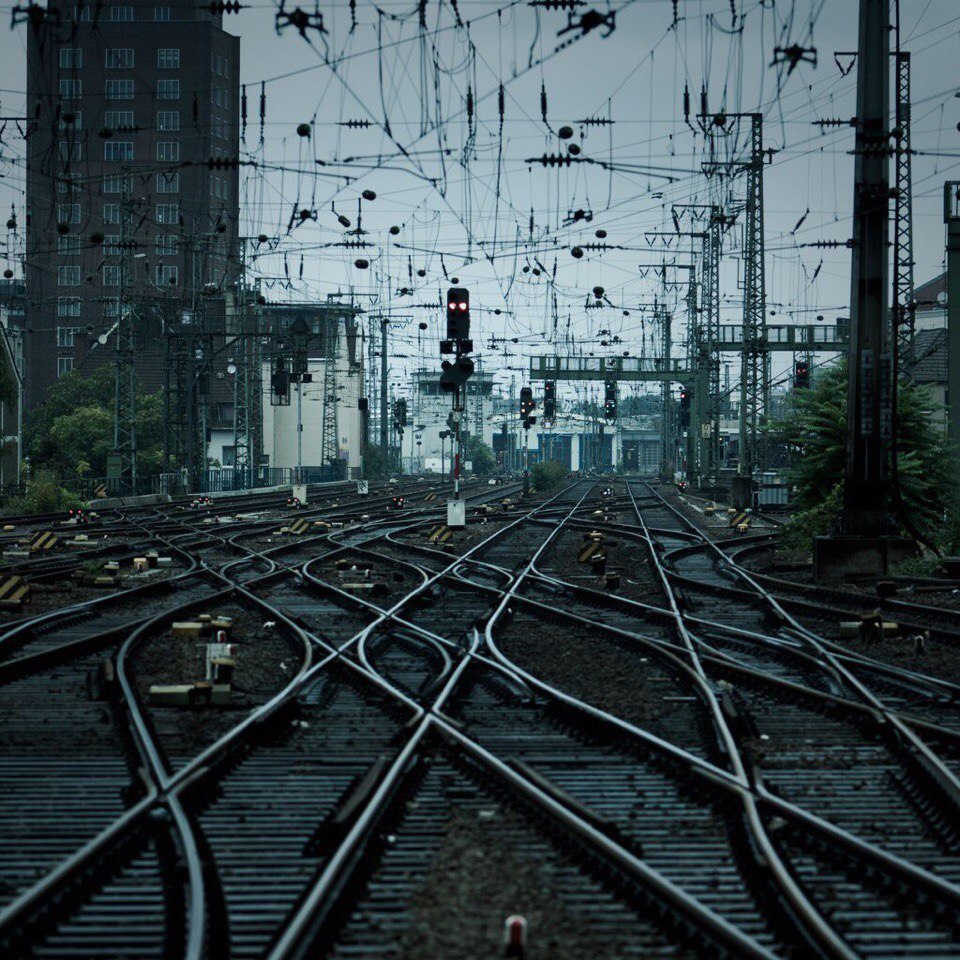
As promised (or threatened), I published my "anniversary" posting over on my otherwise dead blog. I'm fairly happy with what I wrote. When I began rolling up my shirtsleeves in earnest to write it, on Saturday October 19, I had little clear idea what I wanted to say. I knew instinctively I wanted to express something more subliminal rather than the usual hackneyed tropes we've come to traffic in concerning the Covid Shitshow; we in "my Tribe"...
I was also happy to have alit upon a perfect celebrity to use to frame my posting with a photograph: Patrick McGoohan, from a still evidently taken during an episode of his sublime television show, The Prisoner (lasted one season, 1967). When I began this series of "anniversary postings" on February 21, 2018, I started with a cool pic of Dean Martin (which itself was a sort of continuation of a previous posting using Frank Sinatra), then in 2019 used Robert Blake giving the finger, followed in 2020 with Lee Marvin sitting on some railroad tracks smoking a stogie (from his 1973 cult classic, Emperor of the North Pole), then in 2021 with an apposite photo of Albert Camus, looking like a philosophical Bogart with a cigarette in his mouth. (Readers can easily find these former postings; just scroll down from the latest one and/or click on "Older Post" at the very bottom to get to older ones.)
It occurred to me that I never explained the title of that 2021 posting -- "...vivre, alors, est-ce courir à sa perte?" It's a phrase from a fascinating Camus essay, La mer au plus près ("The Sea Up Close"), which I analyzed at length in a 2014 essay (Albert Camus, Elegiac Swansong) on that same old dead blog. The phrase translates as "to live, then, is this to run to one's ruin?" I confess I am using this phrase for a meaning different from what Camus had in mind. That phrase comes at the climax of his essay, and expresses his startling desire to embrace his death in a Socratic manner. My use, however, evokes the CDS -- Covid Derangement Syndrome: i.e., asking the rhetorical question, "by living, and seeking to 'stay safe' in this deranged way, are we not headed toward our own destruction?"
So now the latest iconic figure to helm my series is Patrick McGoohan, harking back to his show The Prisoner. The show was an existential diagnosis of the problem of our own side being the enemy, explored through the protagonist played by McGoohan, a secret agent working for British intelligence who one day is suddenly kidnapped with a sack over his head, thrown in a van, and knocked out, only to wake up on a strange island somewhere far away. On the island is a curiously quaint village with people who sit at outdoor cafes and almost seem to be like props. He is given a nice little cabana to live in, and is told he is now "Number Six" (prompting a leitmotif where at various times he shouts at them, "I am not a number! I am a FREE MAN!!!" Periodically he is summoned into a chamber to be interrogated with head games by "Number Two". Though he keeps requesting to meet "Number One" he is never granted his request. He tries to escape the island, but whenever he does, a strange bobbing white ball (nicknamed "Rover") is deployed to roll and bounce along and stop him.
Unlike many TV series, this one had an ending to cap off the whole story, and it was a doozy: McGoohan finally finds a way to escape the island, and finally finds his way back to London. The first thing he wants to do is return to the scene of the crime -- his flat, whence his assailants had kidnapped him so long before. When he gets there... SPOILER ALERT!
When he gets there, he sees a monkey (or chimp) sitting there grinning like... a monkey. His instinct tells him to go over and rip the monkey's head off, as it is only a mask. Under the mask is... himself! Years later, McGoohan was interviewed and he provided an intriguing explanation for what was meant -- and he basically created the show (executive producer, writer and director of several episodes, and of course star). His explanation is at the heart of philosophy and theology, and I agree with it; though that doesn't mean one ought not fight against injustices in society.